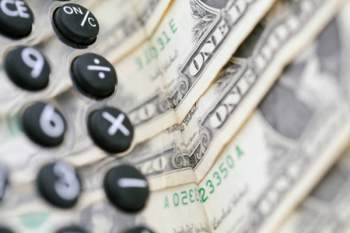
Method of Payment or Tender of Payment

One of the methods to discharge any debt originating from a negotiable instrument is the tender of payment for that instrument. This would seem to be a fairly obvious method of discharging the negotiable instrument, as payment would, essentially, be simply fulfilling the conditions of the negotiable instrument.
But it is possible in some cases for the party to whom tender of payment is made to choose not to accept that payment. In such a case, the Uniform Commercial Code (UCC) provides for specific rules as to exactly what happens to any debt or obligation to pay the negotiable instrument.
Essentially, any payment, no matter what size, paid on a negotiable instrument will always result in some form of discharge of obligation. If, for instance, Alan had given Quinn a promissory note with the agreement that Alan would make a payment of $100 to Quinn by a date 3 months from the note's issuance, then Alan would have an obligation to make a payment of $100 to Quinn.
If Alan then gave Quinn $50 in an attempt to pay off part of that obligation, then according to the Uniform Commercial Code, $50 of that $100 debt would be discharged. If Quinn refused to accept the tender of payment made by Alan, then legally $50 of the debt would still be discharged regardless of the fact that Quinn refused to accept the payment.
In other words, the obligation of the payer to make tender of payment ends with that tender of payment; it does not extend to ensuring that the payment is accepted. Furthermore, if interest were involved, then the party providing tender of payment would not be required to pay any interest on the payment amount after the due date of the loan.
There is no law requiring acceptance of payment when tender of payment is made; hence the rules in the UCC concerning payment and its discharge of debt. In the end, the main point of the UCC in this matter is that as long as the primarily liable party is ready, willing, and able to make payment of the appropriate amount by or at the appropriate time in the appropriate ways, then it does not matter whether or not that tender of payment is accepted, as the obligation of the primarily liable party will have been discharged.
Tender of payment, when made from the primarily liable party to the holder of the negotiable instrument, will discharge all debt from all parties involved if that payment is made in full, regardless of whether or not the holder accepts payment. This covers situations in which the issuer of a promissory note fully pays the note's holder, and situations in which the drawee of a draft pays the current holder in good faith.
If, however, any tender of payment is made by a party other than the primarily liable party, or is made to any party other than the current holder, then the rules on exactly which parties will have been discharged will change.
Tender of payment made by any party other than the primarily liable party will discharge the obligations of that party and any subsequent party, and no one else. Thus, such tender of payment would essentially protect the payer without discharging all the obligation surrounding the negotiable instrument.
NEXT: A Guide to Electronic Funds Transfer Systems





















